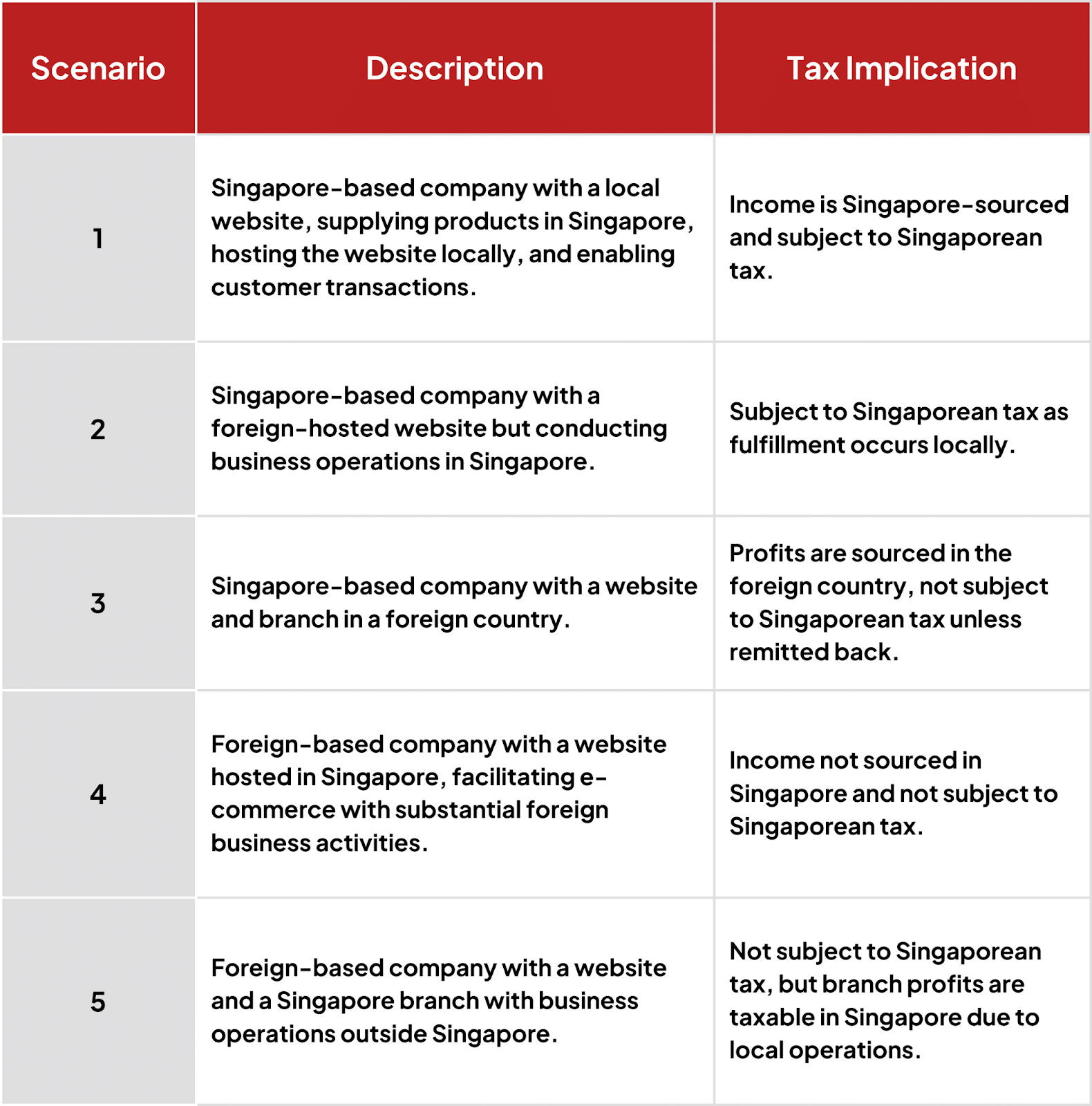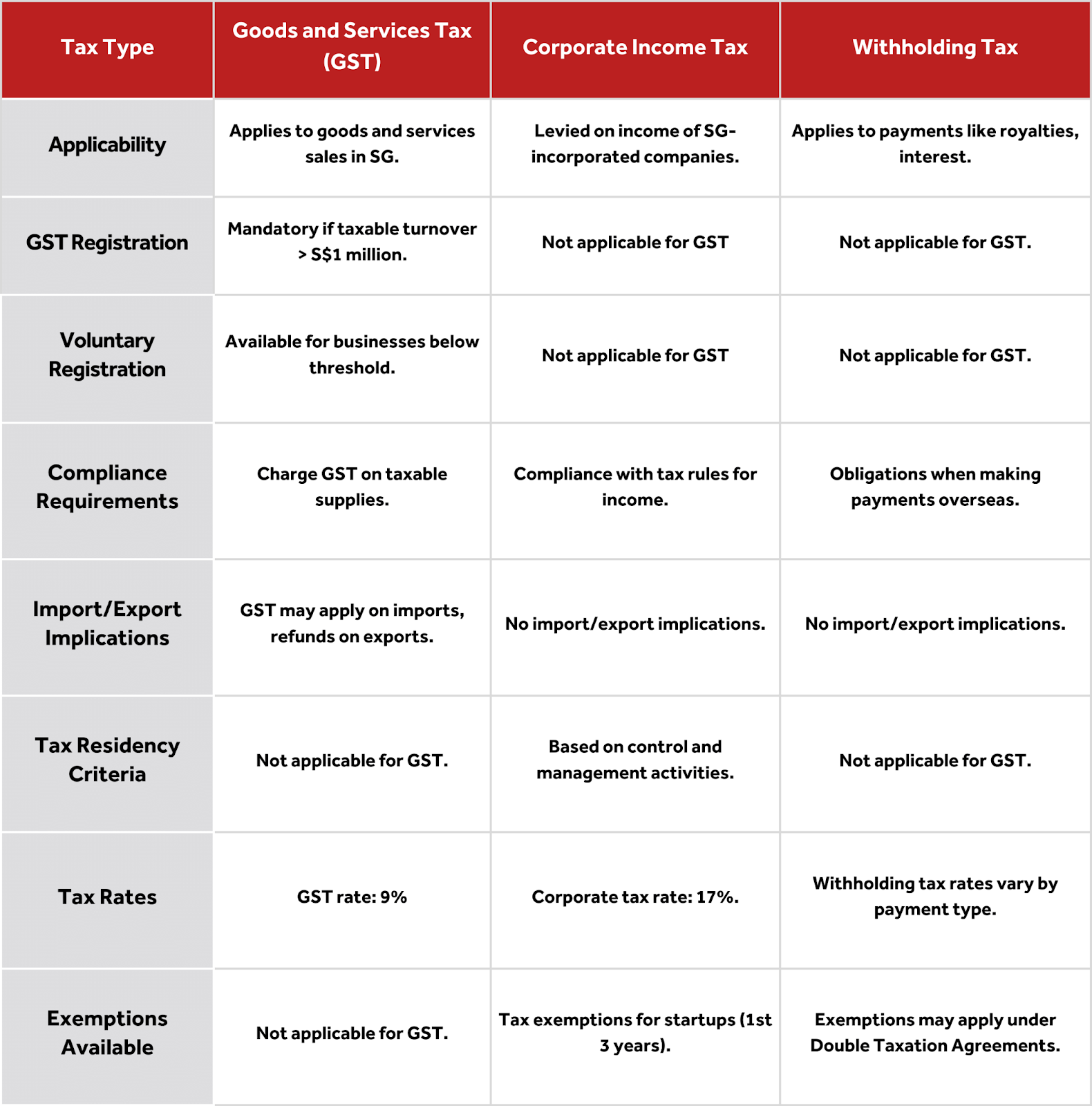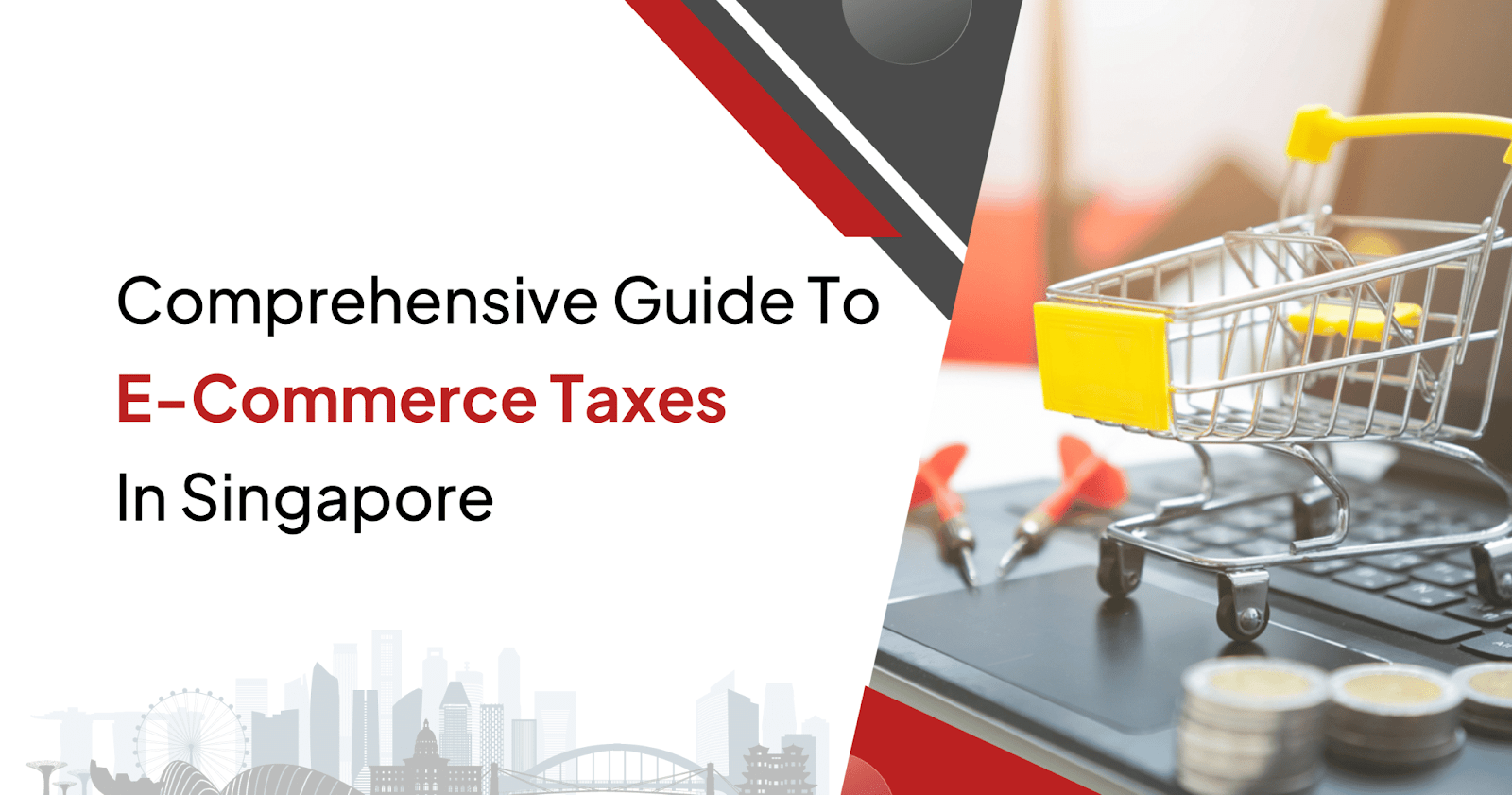As an e-commerce business owner, understanding the tax landscape is crucial, whether selling products, providing digital or freelance services or creating online content for profit.
E-commerce transactions often transcend borders and involve dealings with anonymous parties, making it imperative to stay well-informed about the tax implications of running an online business.
This concise guide to e-commerce taxation in Singapore is designed to help e-commerce business owners understand and comply with their industry’s tax rules and requirements.
Inside This Article:
- What are the Types of Online Income-Generating Activities?
- How Is the Taxability of Income From Online Activities Determined?
- How to Determine the Source of Taxation in E-commerce Business in Singapore?
- What are the Registration Requirements for E-commerce Businesses in Singapore?
- What are the various types of business taxes applicable to Singapore’s e-commerce business?
- When to File a Tax Return in Singapore?
- Conclusion
What Are the Types of Online Income-Generating Activities?
You might be involved in online ventures with the aim of generating income through activities such as:
Selling or leasing products
Examples include drop shipping goods and local product deliveries.
Offering digital or freelance services
These encompass services like delivery, household tasks, graphic design, virtual assistant services, online tutoring, webinars, and consultancy.
Providing online content
Income sources may involve advertising, blogging, subscriptions, and commissions.
How Is the Taxability of Income From Online Activities Determined?
Income from online activities conducted for profit, especially when done systematically like a business, is taxable. This applies whether the activities are part-time or full-time.
If online activities are conducted through an overseas platform, the income becomes taxable in Singapore if the business operations supporting these activities are based in Singapore.
For instance, if online sales via Amazon US involve essential activities performed in Singapore, such as identifying saleable products and handling orders, the income is considered Singapore-sourced and taxable.
However, income from disposing of products primarily for personal enjoyment, not for resale at a profit, is not taxable.
How to Determine the Source of Taxation for an E-commerce Business in Singapore?
Singapore follows a territorial basis of taxation for income that accrues in or derives from Singapore or is received in Singapore from outside the country.
- E-commerce poses challenges due to its electronic borderless nature, making it necessary to identify whether the e-merchant is trading in or with Singapore.
- Factors considered in determining the source of income include the place of contract, location of operations, labour, capital investment, goods manufacturing, storage, expense payments, and sales proceeds receipt.
- Application of these factors can be complex in reality, especially in cases involving multiple jurisdictions.
The Singapore tax authority clarifies common e-commerce taxation scenarios:

These scenarios outline how the Singapore tax authority determines tax implications for various e-commerce situations.
What are the Registration Requirements for E-commerce Businesses in Singapore?
Business Registration:
E-commerce ventures in Singapore must undergo registration with the Accounting and Corporate Regulatory Authority (ACRA). This step is essential to ensure your business is legally recognized and adheres to Singapore’s legal framework.
Goods and Services Tax (GST) Registration:
Depending on your taxable turnover, e-commerce businesses may need to register for GST. GST registration is mandatory if your annual turnover exceeds or is projected to exceed SGD 1 million. However, for companies with turnover below this threshold, voluntary registration is also available, offering the benefit of claiming input tax credits on business expenses.
What Are the Various Types of Business Taxes Applicable to Singapore’s E-commerce Business?
This table provides a comparative overview of the main e-commerce taxes in Singapore, including GST, Corporate Income Tax, and Withholding Tax, highlighting their applicability, registration requirements, compliance, and other key details.

When to File a Tax Return in Singapore?
- File a tax return if you receive a letter, form, or SMS from IRAS notifying you to do so.
- You must also file a tax return if your total annual net trade income exceeds $6,000 or your taxable yearly income, including net trade income, exceeds $22,000.
- Your net income from online activities is considered part of your net trade income for tax assessment.
- To file your tax return for income earned in a year, log in to myTax Portal between March 1st and April 18th each year.
- Failure to file your tax return by the due date is an offence.
- If you’re filing taxes for the first time, contact IRAS by March 1st to activate your myTax Portal account.
Conclusion
Commencing an online business in Singapore offers great potential, but it comes with essential tax considerations. Understanding income tax, GST, and corporate tax is crucial. Tax residency, especially for international transactions, should be carefully assessed. Complying with record-keeping and staying updated on tax regulations is vital.
In Singapore, favourable tax incentives and opportunities await those who navigate the tax landscape effectively, ensuring a strong legal foundation for e-commerce success. We provide expert advice on registration, tax residency, and compliance to establish a strong legal foundation for your business.
FAQs on E-commerce Taxes in Singapore
- Yes, you should file a tax return. Even though your net trade income is below $6,000, your total annual taxable income, including employment income, exceeds the income reporting threshold of $22,000. It’s necessary to file a tax return in this case, even if you haven’t received any communication from IRAS regarding it.
- A digital services tax is a specific tax imposed by some countries on digital services provided by foreign businesses. These taxes can apply to various aspects of e-commerce, including online transactions, digital advertising, and the use of online platforms. To ensure compliance and accurate tax reporting, e-commerce businesses need to stay informed about digital services tax regulations in the countries where they operate.
- E-commerce startups have access to tax incentives like the Start-up Tax Exemption (SUTE) and the Partial Tax Exemption (PTE), both of which can effectively lower their corporate tax obligations.
- Withholding tax is a tax imposed on specific payments, such as royalties, interest, and services, made to non-resident entities. E-commerce businesses may encounter withholding tax obligations when making payments to foreign vendors or service providers. This applies to various payment types, including loans, movable property, management fees, and the use of knowledge or information. The applicable withholding tax rates and exemptions depend on the payment nature and the recipient’s tax residency status. Some payments may be exempt from withholding tax, especially when covered by Double Taxation Avoidance Agreements (DTAs). Comprehending these aspects is essential for ensuring e-commerce tax compliance in Singapore.
Ready to Start Your Business?
Elevate your e-commerce prosperity with Rikvin.


